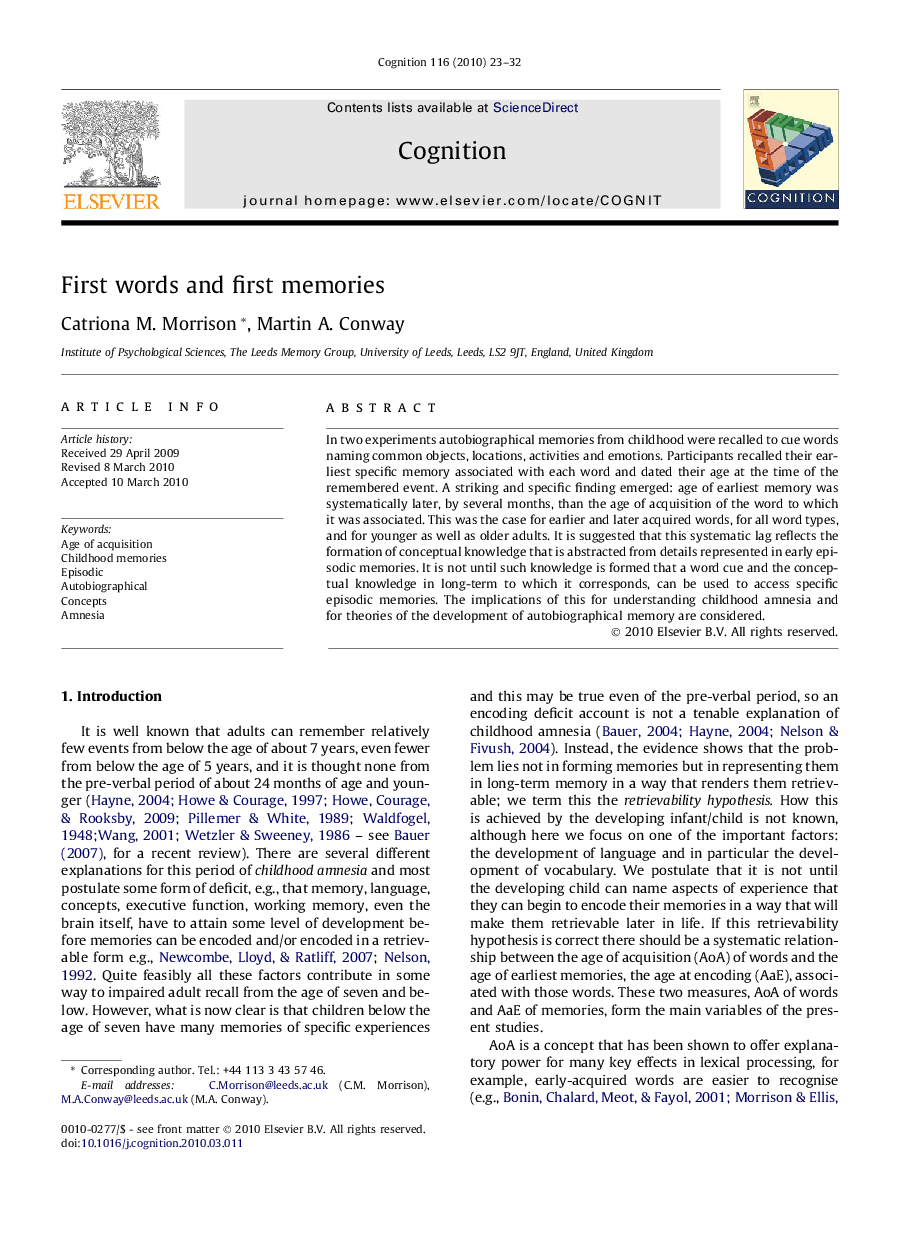| Article ID | Journal | Published Year | Pages | File Type |
|---|---|---|---|---|
| 926973 | Cognition | 2010 | 10 Pages |
In two experiments autobiographical memories from childhood were recalled to cue words naming common objects, locations, activities and emotions. Participants recalled their earliest specific memory associated with each word and dated their age at the time of the remembered event. A striking and specific finding emerged: age of earliest memory was systematically later, by several months, than the age of acquisition of the word to which it was associated. This was the case for earlier and later acquired words, for all word types, and for younger as well as older adults. It is suggested that this systematic lag reflects the formation of conceptual knowledge that is abstracted from details represented in early episodic memories. It is not until such knowledge is formed that a word cue and the conceptual knowledge in long-term to which it corresponds, can be used to access specific episodic memories. The implications of this for understanding childhood amnesia and for theories of the development of autobiographical memory are considered.
